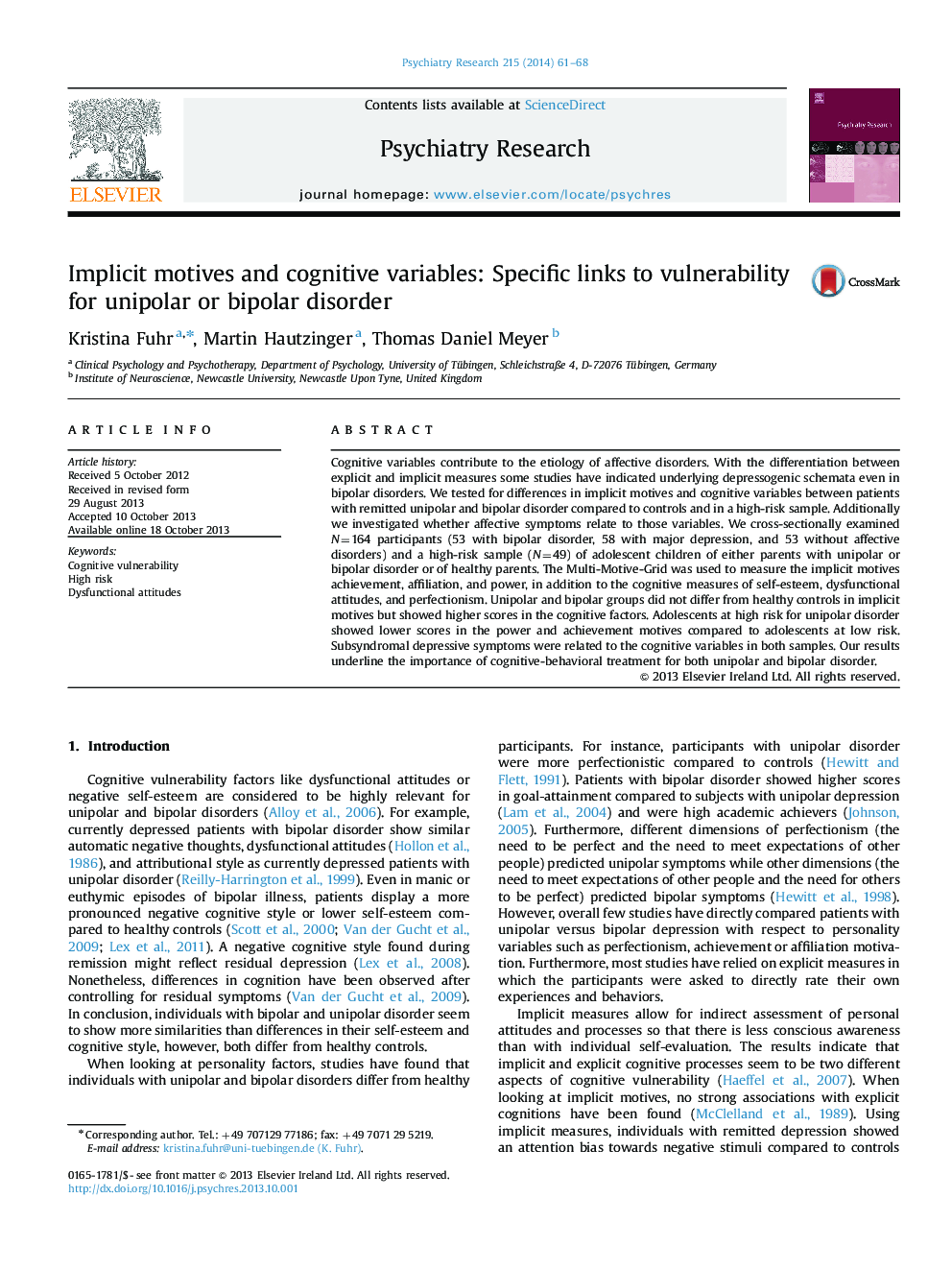| کد مقاله | کد نشریه | سال انتشار | مقاله انگلیسی | نسخه تمام متن |
|---|---|---|---|---|
| 332294 | 545686 | 2014 | 8 صفحه PDF | دانلود رایگان |
Cognitive variables contribute to the etiology of affective disorders. With the differentiation between explicit and implicit measures some studies have indicated underlying depressogenic schemata even in bipolar disorders. We tested for differences in implicit motives and cognitive variables between patients with remitted unipolar and bipolar disorder compared to controls and in a high-risk sample. Additionally we investigated whether affective symptoms relate to those variables. We cross-sectionally examined N=164 participants (53 with bipolar disorder, 58 with major depression, and 53 without affective disorders) and a high-risk sample (N=49) of adolescent children of either parents with unipolar or bipolar disorder or of healthy parents. The Multi-Motive-Grid was used to measure the implicit motives achievement, affiliation, and power, in addition to the cognitive measures of self-esteem, dysfunctional attitudes, and perfectionism. Unipolar and bipolar groups did not differ from healthy controls in implicit motives but showed higher scores in the cognitive factors. Adolescents at high risk for unipolar disorder showed lower scores in the power and achievement motives compared to adolescents at low risk. Subsyndromal depressive symptoms were related to the cognitive variables in both samples. Our results underline the importance of cognitive-behavioral treatment for both unipolar and bipolar disorder.
Journal: Psychiatry Research - Volume 215, Issue 1, 30 January 2014, Pages 61–68
